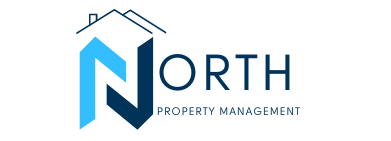
1. Understanding the Role of a Property Manager
A property manager plays a crucial role in overseeing and managing the day-to-day operations of rental properties on behalf of the property owner. Their responsibilities range from marketing and tenant acquisition to lease management, rent collection, and property maintenance. They act as a bridge between landlords and tenants, ensuring smooth communication and addressing any concerns promptly. Property managers also handle legal and compliance matters, conduct property inspections, and strive to maximize the property’s profitability while maintaining a positive landlord-tenant relationship.
2. Setting Clear Objectives and Goals for Your Investment
Before diving into property management, it’s essential to set clear objectives and goals for your investment. Determine the type of property you want to invest in, whether residential or commercial, and outline your financial expectations. Identify your target market and preferred location for investment properties. By having well-defined objectives, you can align your property management strategies to meet these goals effectively.
3. The Importance of Legal Compliance and Understanding Landlord-Tenant Laws
Legal compliance is paramount in property management. Familiarize yourself with local, state, and federal landlord-tenant laws and regulations to avoid legal issues and potential liabilities. This includes understanding fair housing laws, tenant rights, eviction procedures, security deposit regulations, and lease agreements. Adhering to these laws not only protects you as a landlord but also ensures a fair and safe living environment for your tenants.
4. Effective Tenant Screening and Selection Process
Tenant screening is a critical aspect of property management that involves evaluating potential tenants to find reliable and responsible individuals for your property. Conduct thorough background checks, including rental history, employment verification, credit checks, and reference checks. By selecting high-quality tenants, you can minimize the risk of late payments, property damage, and eviction.
5. Creating Strong Lease Agreements to Protect Your Interests
A well-crafted lease agreement is vital for protecting your interests as a landlord. Clearly outline the terms and conditions of the lease, including rent payment details, pet policies, maintenance responsibilities, and lease renewal terms. Ensure that the lease complies with local laws and regulations while also addressing common issues that may arise during the tenancy.
6. Establishing a Transparent Rent Collection System
Having a transparent and efficient rent collection system is crucial for maintaining a steady cash flow. Clearly communicate the rent due dates and accepted payment methods to tenants. Utilize technology for online rent payment options to make it convenient for tenants to pay on time. Consistency in rent collection fosters a positive tenant-landlord relationship and minimizes delays in payments.
7. Navigating Maintenance and Repairs Responsibly
Property maintenance is essential for preserving the value of your investment and keeping tenants satisfied. Develop a proactive maintenance schedule and promptly address repair requests to avoid further damage. Maintain records of maintenance and repairs for accurate financial tracking and tax purposes. Establish good relationships with reliable contractors and vendors to ensure quality and cost-effective maintenance services.
8. Strategies to Minimize Vacancies and Turnover
Vacancies can significantly impact your property’s profitability. Implement effective marketing strategies to attract potential tenants and minimize vacancy periods. Offer competitive rental rates, maintain the property’s curb appeal, and use online listing platforms to reach a broader audience. Focus on tenant retention by providing excellent customer service, addressing tenant concerns promptly, and offering lease renewal incentives.
9. Dealing with Challenging Tenants and Conflict Resolution
Property managers must be prepared to handle challenging tenants and resolve conflicts diplomatically. Maintain open communication with tenants and listen to their concerns. When disputes arise, mediate between parties and try to find amicable solutions. In cases of non-compliance or serious issues, follow the proper legal procedures while always remaining professional and fair.
10. Embracing Technology for Streamlined Property Management
Technology can significantly improve property management efficiency. Utilize property management software for tasks such as rent collection, financial reporting, and maintenance tracking. Consider implementing smart home technology to enhance security and energy management. Embrace online communication tools to streamline tenant communication and provide quick responses to inquiries.
By understanding and implementing these key aspects of property management, you can enhance the success of your investment and provide a positive experience for both yourself and your tenants.
